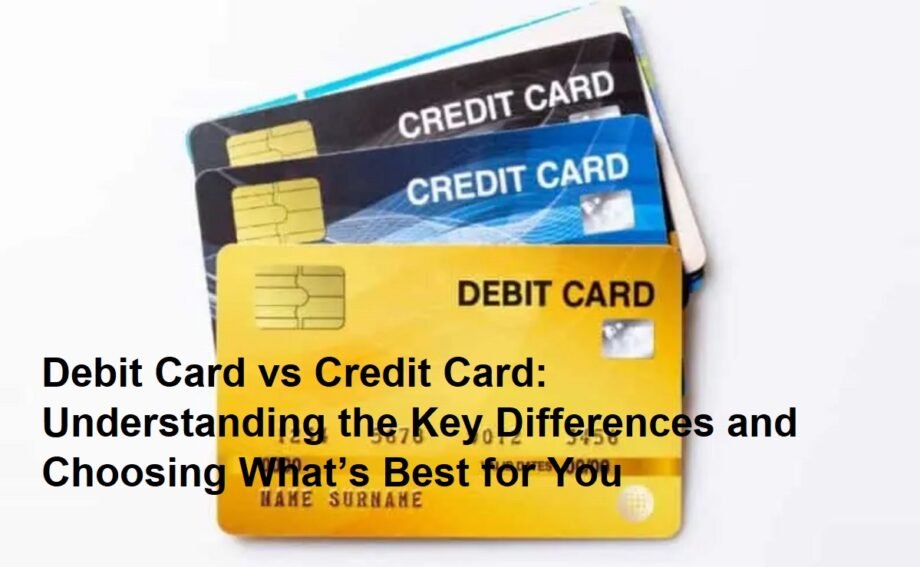In today’s fast-paced financial world, understanding the differences between a debit card and a credit card is essential for managing your money wisely. While both cards provide convenient cashless payment options, they differ significantly in function, benefits, and impact on your financial health. This article will explore the main distinctions between debit and credit cards, help you weigh their pros and cons, and guide you in selecting the right card based on your needs.
What is a Debit Card?
A debit card is directly linked to your bank account, allowing you to make purchases or withdraw cash up to the amount available in your account balance. Whenever you use a debit card, the money is deducted immediately from your checking or savings account, which means you are spending your own money.
Advantages of Debit Cards include:
- Avoiding debt because transactions use funds you already have
- No interest charges since you are not borrowing money
- Typically fewer fees compared to credit cards
- Easy access to your money for everyday purchases
However, debit cards do not usually help build credit history, and they offer limited protections against fraud compared to credit cards.
What is a Credit Card?
A credit card allows you to borrow money up to a preset credit limit, which you then repay at a later date. It offers flexibility by letting you delay payments, often with an interest-free grace period if you pay your balance in full each month.
Advantages of Credit Cards include:
- Helping to build and improve your credit score when managed responsibly
- Offering rewards programs such as cashback, points, or travel benefits
- Providing enhanced fraud protection and purchase security
- Access to credit for emergencies or larger purchases
On the downside, credit cards carry risks if not used wisely, including accumulating debt and paying high-interest rates on unpaid balances.
Key Differences Between Debit and Credit Cards
| Feature | Debit Card | Credit Card |
| Source of funds | Own bank account funds | Borrowed money with credit limit |
| Impact on credit score | Usually no impact | Can build or damage credit history |
| Interest fees | None | Charged if balance not paid |
| Fraud protection | Limited, depends on bank policies | Stronger consumer protections |
| Spending control | Limited to account balance | Up to credit limit |
| Benefits & rewards | Generally minimal | Often offers rewards & perks |
Which One Should You Choose?
Choosing between a debit card and a credit card depends on your financial habits, goals, and needs:
- If you want to avoid debt, prefer controlling your spending closely, or want to limit your risk exposure, a debit card is a straightforward option. It is ideal for daily expenses and budgeting.
- If you aim to build credit, enjoy rewards programs, or need flexible payment options for larger purchases, a credit card may be more suitable. However, discipline is crucial to avoid overspending and debt accumulation.
Many financial experts recommend having both cards: using a debit card for small, routine purchases and a credit card for bigger expenses or situations requiring fraud protection and rewards.
Tips for Responsible Use
- Always monitor your account statements regularly to spot any unauthorized transactions.
- Pay your credit card balance in full each month to avoid interest payments.
- Use a debit card for purchases within your budget to prevent overdrafts.
- Be aware of fees associated with both types of cards, including ATM charges and foreign transaction fees.
- Choose cards that offer the features and protections that best fit your lifestyle.
Summary
understanding the differences between debit and credit cards is crucial for effective financial management. Both have unique advantages and potential pitfalls. By using them wisely and responsibly, you can maximize their benefits and achieve financial stability while safeguarding your money and credit history.









